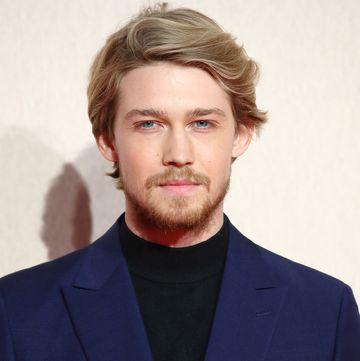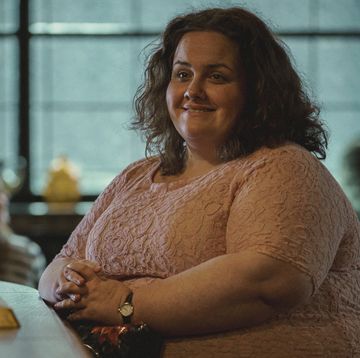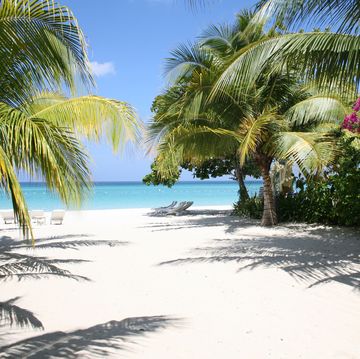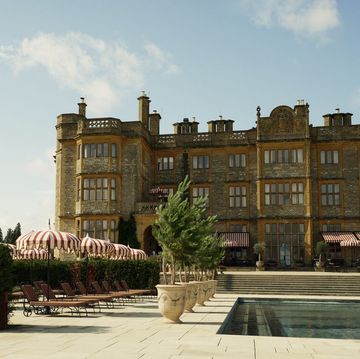Actress Ellen Page may be a reluctant A-lister, but she has no doubts about the powerful message she wants to send.
Until 14 February 2014, Ellen Page, 28, was a rare thing in Hollywood: a young actress known solely for her work. Ellen, who grew up in Halifax, Nova Scotia, had taken to acting ‘by accident’ at the age of 10, studied it seriously in Toronto and moved to LA at the age of 22 after the breakthrough success of movies Hard Candy and Juno. Her starring roles in blockbuster franchise X-Men and opposite Leonardo DiCaprio in Inception positioned her in a Hollywood set of smart, young women who could do both the indie thing and the blockbuster thing while keeping everything else out of the spotlight. Then, on Valentine’s Day two years ago, everything changed.
The actress collected herself alone in a hotel room in Las Vegas, shaking with nerves, on the cusp of preparing to address the Human Right Campaign’s Time To Thrive conference, where she came out as gay. It took eight minutes and 37 seconds to change her life forever, and five million YouTube views (and counting) later, the impactof her words is still being felt. For Ellen, it wasn’t until she came out that she could own her platform in the manner she always wanted honestly, proudly, with the power to effect change. Her Oscar-tipped movie Freeheld, a love story and important civil rights milestone based on the Oscar-winning documentary of the same name, along with Vice TV series Gaycation (out February), which she produced with Spike Jonze, typify the kind of work she’s always wanted to do. ELLE met Ellen (and her puppy, Patters) over tea at Hollywood’s Chateau Marmont to talk politics, relationships and liberation.
Was producing and working on Freeheld for six years a catalyst in your decision to come out?
It was part of it. What blows my mind is how much my own personal journey paralleled the development of that movie. It felt wildly inappropriate to be playing this character as a closeted person. Coming out was a long process, though.
How did it feel delivering your very public coming out speech?
It was the most nervous I’ve ever felt. When I was writing it, I’d try and read it to friends and close family and I couldn’t get five lines in without crying. I couldn’t even get to the ‘I’m gay!’ part. Even when I was up there, close to saying I was – you know [she mouths the word ‘gay’] – I was like, ‘Oh sh*t, here it comes!’
What’s the queer scene like in LA?
Conversations create change. It’s easy to call someone ‘enemy!’ but there’s more to it, right? Not long ago in LA you could go to a gay bar, be flirted with by an undercover cop, and put in jail. There’s much more work to do to make sure kids no longer grow up feeling ashamed of who they are. This could be naive and wildly idealistic, butformethewayinis through the heart.
Do you like the Cali lifestyle?
I love LA. I’m a full-blown cheerleader for it. My new thing is surfing. My girlfriend, Samantha [an artist] is teaching me. I’m also just enjoying hanging out with my dog. Patters is four months old. He’s awesome.
You both proactively share your lives on social media
It’s something that feels very natural to me. Before I came out, I’d take a partner to [public] events but we’d never touch and she would be my ‘friend’. Now I’m like, ‘F*ck that.’ I’m going to live my life and enjoy my relationship because it’s awesome.
So things are improving for LGBTQ actors in Hollywood?
Clearly, yes. Zachary Quinto is out and he stars in one of the biggest blockbuster franchises [Star Trek]. I have four projects coming up – all gay roles. People ask if I’m concerned about getting pigeonholed. No one asks, ‘Ellen, you’ve done seven straight roles in a row, shouldn’t you shake it up, do something queer?’ There’s still that double standard. I look at all the things I’ve done in movies: I’ve drugged a guy, tortured someone, become a roller-derby star overnight. But now I’m gay, I can’t play a straight person? OK, cool.
Did you enjoy your own blockbuster success with this personal freedom?
Oh man, I wish I could have gone through [X-Men] feeling the way I feel now being out. There’s a deeper sadness because of the privilege of experience I have and how many people feel that way who are in areas of the world where coming out can lead to getting brutally hurt or worse.
You’ve spoken openly about your experiences with depression. How did you handle that while building your career?
When you’re on that track you’re a racehorse, going and going with these blinders on. You don’t stop to address how you feel. I’d get panic attacks and sense an incredible discomfort because I didn’t relate to the conformity that comes with my gender [such as wearing feminine dresses on photo shoots]. I was doing something I love and also wondering, ‘What’s wrong with me?’ You hate yourself for feeling bad, so you pretend you’re happy. I’d ask myself, ‘Can’t you just flip a switch, be a character, play the game?’
So you’re free from that now?
Yes! I do interviews with a sense of, ‘Oh, this is what it’s like.’ A photo shoot used to only represent discomfort; I felt guilty for lying. Fashion once meant dresses and heels, and I didn’t knowwhy I’d want to be dressed that way. Now I’m like, ‘Oh my god those Saint Laurent boots!’ Those are not words I thought I’d ever say. A beautiful suit is nice. I get fashion now. In fact, I love it.
What are you looking forward to?
I’m enjoying producing, pushing forward stories that, selfishly, I want to see. I recently shot a movie with Evan Rachel Wood, a dear friend; I’m producing it
with Kate Mara. I’m friends with many actresses my age and it’s competitive, absolutely, but it’s also the most supportive, lovely environment. Women don’t really get to work together because movies usually involve a lot of men and one woman. When women want to work together, we have to make it happen ourselves.
Freehold is out 17 February
Words: Eve Barlow
Pictures: Getty












